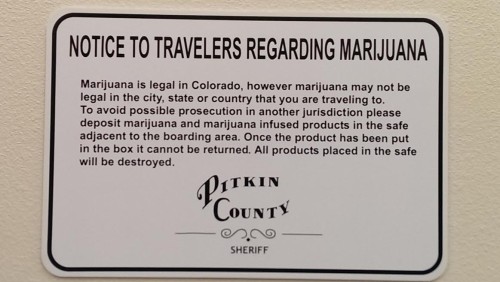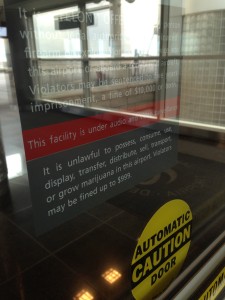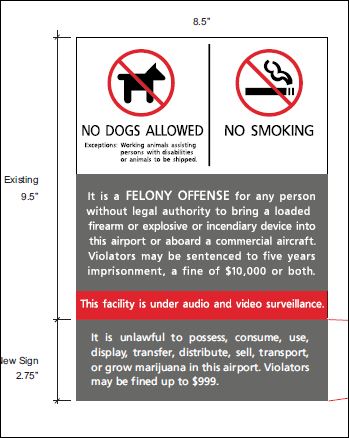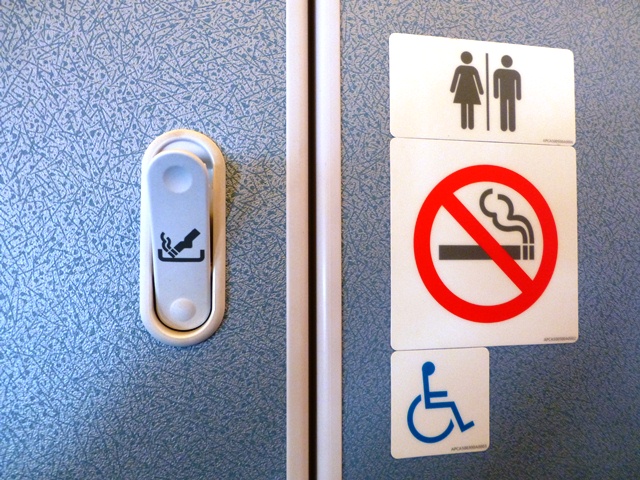Can you vape on vacation? Maybe. Maybe not.
Sales of e-cigarettes and their cousins, re-fillable “vaporizers,” are currently a $2.2 billion market in the United States, according to tobacco analysts at Wells Fargo Securities, up from an estimated $1.7 billion in 2013. And e-cig consumption could surpass that of combustible cigarettes in 10 years, according to the same forecast.
Yet, while the popular, smoke-free, nicotine delivery tools are marketed as being less toxic than traditional cigarettes, the options for where travelers may use the devices can be hazy.
In the air
Although its rules don’t explicitly spell it out, the Department of Transportation believes the existing ban on smoking on domestic and international flights of U.S. and foreign air carriers is sufficiently broad to include a ban on the use of electronic cigarettes.
“We are finalizing a rule that will address whether we should amend the existing regulatory text to explicitly ban use of electronic cigarettes aboard commercial airline flights. DOT expects the final rule will be published in the Federal Register in early 2015,” an agency spokesperson said via email.
While e-cigs are sold at some airport newsstands, their use is determined by local regulations and ordinances.
A handful of airport shops operated by Paradies have been selling e-cigs since July at the request of the airports, according to Paradies Senior Marketing Manager Justin Marlett.
The Hudson Group also sells e-cigs in some airport newsstands. Cigarettes and other tobacco products, including e-cigs, now account for less than 1 percent of Hudson’s overall newsstand sales, “but while only 7 percent of that 1 percent is represented by e-cigs, e-cigarettes are the only tobacco products that are showing growth…albeit only incremental growth,” said Mike Maslen, Hudson’s vice president of sales.
Buying e-cigs at an airport is one thing, using them there is another.
Rules vary airport-to-airport, and sometimes within concession-to-concession. Until earlier this year, when Minnesota enacted legislation banning e-cigarettes from government buildings, e-cigs could be used in the terminals of Minneapolis-St. Paul International Airport.
“We had no ordinance or policy banning them,” said Patrick Hogan, MSP’s director, public affairs & marketing, which mean e-cigs could be used in areas controlled by the Metropolitan Airports Commission. “However, concessionaires and airlines could prevent their use within their leased space. I don’t know how many did,” said Hogan.
Because the city of Los Angeles prohibits e-cigarettes inside public buildings, “the public is prohibited from using e-cigarettes within 20 feet of entrances to terminals, office buildings, and other on-airport properties,” said LAX spokesperson Nancy Castles.
But at Denver International Airport, where some retailers sell e-cigs, “this falls under the airport’s tobacco policy, so their use is only allowed in areas where smoking is allowed, such as the remaining smoking lounge on the C Concourse,” said airport spokesman Heath Montgomery.
At hotels
Hotels also vary widely in their e-cig policies.
While the cluster of hip Provenance Hotels in Oregon, Washington and Nashville, Tennessee, have no formal policies on e-cigs, The Warwick in San Francisco is clear that the hotel’s smoking ban includes e-cigs.
And while some hotels sell e-cigs in the in-room mini-bars, “most hotels use the same policy for e-cigs as they do for traditional smoking,” said Julie Faver-Dylla, executive director of the Hotel Association of Tarrant Country, Texas, which represents about 400 properties in and around Arlington and Forth Worth.
“Although we understand that oftentimes the vapor produced by e-cigs is less damaging to our properties and less offensive than traditional burned cigarettes, there many variants of those products in use, and it is not possible for hotel staff to determine which might be problematic,” she said.
At sea
There is no industry-level policy on e-cigarette use on cruise lines, but “it is something that individual cruise lines are looking at,” said Elinore Boeke, spokeswoman for Cruise Lines International Association, the industry’s trade association.
American Cruise Lines, for example, does not have a formal policy in place for e-cigarette use, but “for our smoking passengers there is a designated area on the top deck of each of our ships. In the event we have a passenger who does use e-cigs or vapes, we encourage them to go up to the top deck as well,” said company spokesman Britt Rabinovici.
On the Holland America Line, “electronic cigarettes are permitted in staterooms but not in other public areas of the ship other than on outside decks designated as smoking areas,” but on Royal Caribbean Cruises, e-cigarette users must join traditional cigarette, cigar and pipe smokers in designated outdoor areas of the starboard side of most ships.
(My story about e-cigarettes first appeared on CNBC Road Warrior).




